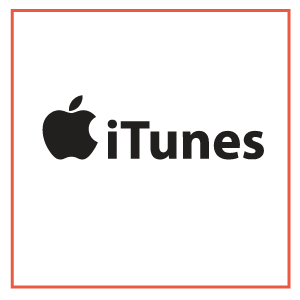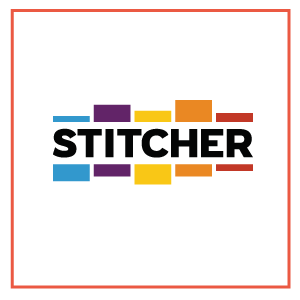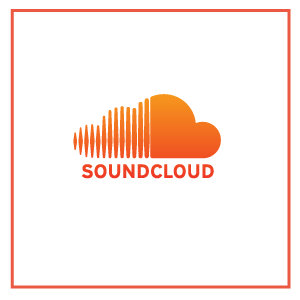Episode 33: Website Design Brisbane Prices
Starting a New Website? - Learn more about Web Design Brisbane here
ALSO LISTEN ON
READ THE TRANSCRIPT OF EPISODE 33 BELOW
[00:00:00] Saul: Hi everybody, and welcome to the Web Design Brisbane Podcast. This is episode number 33. And today's episode is entitled Website Design Brisbane Prices. My name is Saul Edmonds, and as usual, I'm joined by the lovely Gillian Smith.
[00:00:14] Gillian: Hello Saul. Good morning to you and good morning, everyone.
[00:00:17] Saul: Oh, yes. Hello, exactly. We are the co-founders and creative directors of ran has the creative agency, a local business with a passion for helping our clients grow. Over to you, Gil.
[00:00:27] Gillian: Okay, thanks. So well, in today's episode, we're talking about web design and pricing again, well, how much does it cost to build a website and a local Brisbane businesses, we discuss how much you can expect to pay for custom website design in Brisbane 2019. Well, today, the average price of designing and developing a custom-tailored website ranges from it could range from as little as $1,000, right up to $100,000, and even more. Now, that's a pretty big price, right?
[00:00:56] Saul: Yeah, it's pretty broad.
[00:00:57] Gillian: Okay, so it's important to remember that your website is a key investment in your business and it's a lead generation machine built for growth so to learn a little bit more about the price factors behind a website cost. We hope that by helping you here, you'll be able to better understand what goes into a website development behind the scenes, and then have a better understanding of pricing. You want to get started?
[00:01:21] Saul: Yes, let's get started.
[00:01:22] Gillian: Okay, well, first of all, let's look at all the separate cost factors that go into a website design development. Okay, first of all, I guess it starts with domains.
[00:01:31] Saul: So what is the domain? I hear you asked. Why does it matter? And how much does it cost? So a domain is an example of obviously is google.com so that's just the name, that everything has like a tag so that somebody knows where they have to go, it's like a street sign. That street sign points over to your actual website where all your false reside, and people are able to view and have the experience on your website but the domain is the thing that also generally will tie into your business name or your brand or whatever that is. Why is it matter? That because it's obviously tells people who you are, and where to go on a very simple level. And, yeah, they cost also. People charge a lot of different sort of pricing, a lot of the big providers will generally be cheaper overall, because it's there, it's their primary business. But some domains are usually registered, actually, most really are registered, either then yearly, or by yearly. But a lot of them have the option to pay more than that edit at anyone hit for a number of years at once. And they can break from like anywhere from like $60 he up to like a few hundred, but some of the more unique extension so the extension being the .com part, but the bid after the dot, that's called a...
[00:03:14] Gillian: new ones, have they?
[00:03:15] Saul: There's a lot of new ones. And some of those that people considered to be more premium ones, cost more and also premium, the mains to which generally are shorter ones so say if you had cats.com, someone, generally with a lot of those people already on them, and then they'll try to sell them but if you buy them, they'll be a lot more expensive.
[00:03:40] Gillian: Okay, well for domains. Let's go to SSL certificates. Now, what is an SSL certificate? When do you need them? And how much did I cost?
[00:03:47] Saul: Okay, so when you go to your website, up in the address bar, there's a little bit next to it that says whether your site is secure or not so it's secure by what's called the SSL certificate. It's just a way for any viewers who come to your website, to essentially put it very simply to authorize that who you say you are, and you're not another site, pretending to be you, or something else that's meant to do something they shouldn't be doing online and really to authorize that you're who you say you are, and you're okay. It's a level of trust online and you need them because especially in more recent times, because Google has made it compulsory, in the sense that if you don't, if normal sites don't have a security certificate on the site, there's a little warning saying your site is not secure, essentially, meaning you should have it because otherwise it, of course looks bad. SSL certificates used to be the province only of ecommerce sites, and in one sense, the more important for ecommerce sites, they cost to like, costs can range from a couple of hundred per year, up to far greater than that, depending on who you go to.
[00:05:24] Gillian: Okay, well, let's now go on to talk about custom website design. So Saul, in a nutshell, what is a custom website?
[00:05:33] Saul: So a custom website, that term will mean different things, different people, what it means for us, if we're saying, we're going to build you a custom website that can be based off existing WordPress layout, but as a starting point, it lets us customize it into a pretty deep level to suit both the colours and the look and the feel, and also the (Leia) and a highly customized kind of why. If you're talking about that at an even deeper level, meaning that you're not building an inside something like WordPress, you have to build the whole design and even the front end, and the back end, where people login, or manage users, you have to design all of that from scratch, then that's a fully custom experience, because everything has to be thought out from scratch, there's nothing is built for you, in the first place. Advantages are that your site will have its own flavour that ultimately suits your brand.
[00:06:55] Gillian: [tailor made].
[00:06:57] Saul: Yeah, [tailor made], that'd be mobile friendly. Yeah, and a custom website design add any, any sort of side so all depending on the scope of that project. It's anything from a few thousand dollars upwards or depending on the scope of the project.
[00:07:18] Gillian: Okay, well, let's now just touch on website content and web pages. Is your website pricing or will it be dependent on how many pages you actually have on your website?
[00:07:28] Saul: Well, that is one factor. That's a very good question. That is one factor. And that if you've got six to eight pages, we might sort of say, people price things differently, some places will price a page is a cost and if you've got that many pages, then it's that multiplied by that price, we sort of generally, for smaller sites will have a range of six to eight pages, and it has a certain fee for that but that's the difference, the bigger your site is, if you've got a,.. you may consider to be a page, although strictly not a page, and individual product on a very big ecommerce site so if you got 20,000 products on a site, then that's a lot more content that has to be added and so on.
[00:08:25] Gillian: Okay, well, let's just go into touch on ecommerce websites, what are some basic guidelines you have for people here are just getting started? And what some pricing can they expect there?
[00:08:35] Saul: Okay, so e commerce to this also gets back to content and the amount of content and the amount of products you actually have on your site so for an e commerce site anything from four to $5,000 and upwards for most ecommerce sites, but and saying upwards, because then that can range hugely depending on like things like I was saying before, about the size of a website, and the time that's going to take will vary greatly from an e commerce site that's gone. Yeah, you still have to set up a range of other things in an ecommerce site that you don't in a non ecommerce site but then the difference between a few products and some 10s of thousands of products is obviously quite a lot so we just working out pricing, and so everyone understands, firstly, because before I pricing guide is given about the, the amount of time that it's likely to take, so people have some perspective on it because otherwise, it's just throwing figures around in the air.
[00:09:57] Gillian: If you need a logic custom site, you might need some database integration. Saul, can you tell us a little bit about the process of website, building websites with that database integration side?
[00:10:08] Saul: Okay, so if you're building in something like WordPress, that feature, so to speak, is already built into it, because it's run of that sort of structure anyway so everything when you have a database, it's kind of what the word says you've got information that's stored, is housed inside something and then drawn into the site to retrieve information in order to show something on the front end to a user so an example would be like in an ecommerce site, they information about individual products stored inside of [seta] data that includes their name, it lists the image, the price and everything that somebody needs to know. Then when somebody goes and views that website, it draws the data from the database, and so having a database one of the big advantages of doing that, especially the bigger things get, if you need to import export information into the database, that's done in a more optimal sort of way, as opposed to having like an individual page that kind of have to upload into the site, especially if you've got a really obvious example, is if people who have very large amounts of products on this site, and they're constantly updating them, if they're able to import information, which is just purely information in a takes form into a database, and they reference the images, and they've got to add, , might be quite a number every day. It's a quicker process and better process to do it inside a database, then it is otherwise but all the technical aspects aside, what that means is that with any site would suit the different functions that need to be included with the end result that we want to give to the client and it's not always important, or people don't want to know, the technical side of it but hopefully, if we can help people understand it a little bit more, so that they've got a bit of a handle on what people actually doing for them, then that's an [inaudible] anyway, a better experience for people. Happy Days all around. Hopefully, that's always that's great. The goal is for people to have a good experience and have a great product at the end of it. And with that in mind. That's it for today again, guys, thank you so much. Before we go, please don't forget to rate review, and subscribe to this podcast. We'd love to hear your feedback and what we would also if we'd like. If you'd like to read the transcript of this episode, please visit our website at roundhouse.cc/web-design. We're on a journey to help local Brisbane businesses grow their opportunities online and exceed their goals. Thanks for listening and we'll see you tomorrow. Bye, guys.








